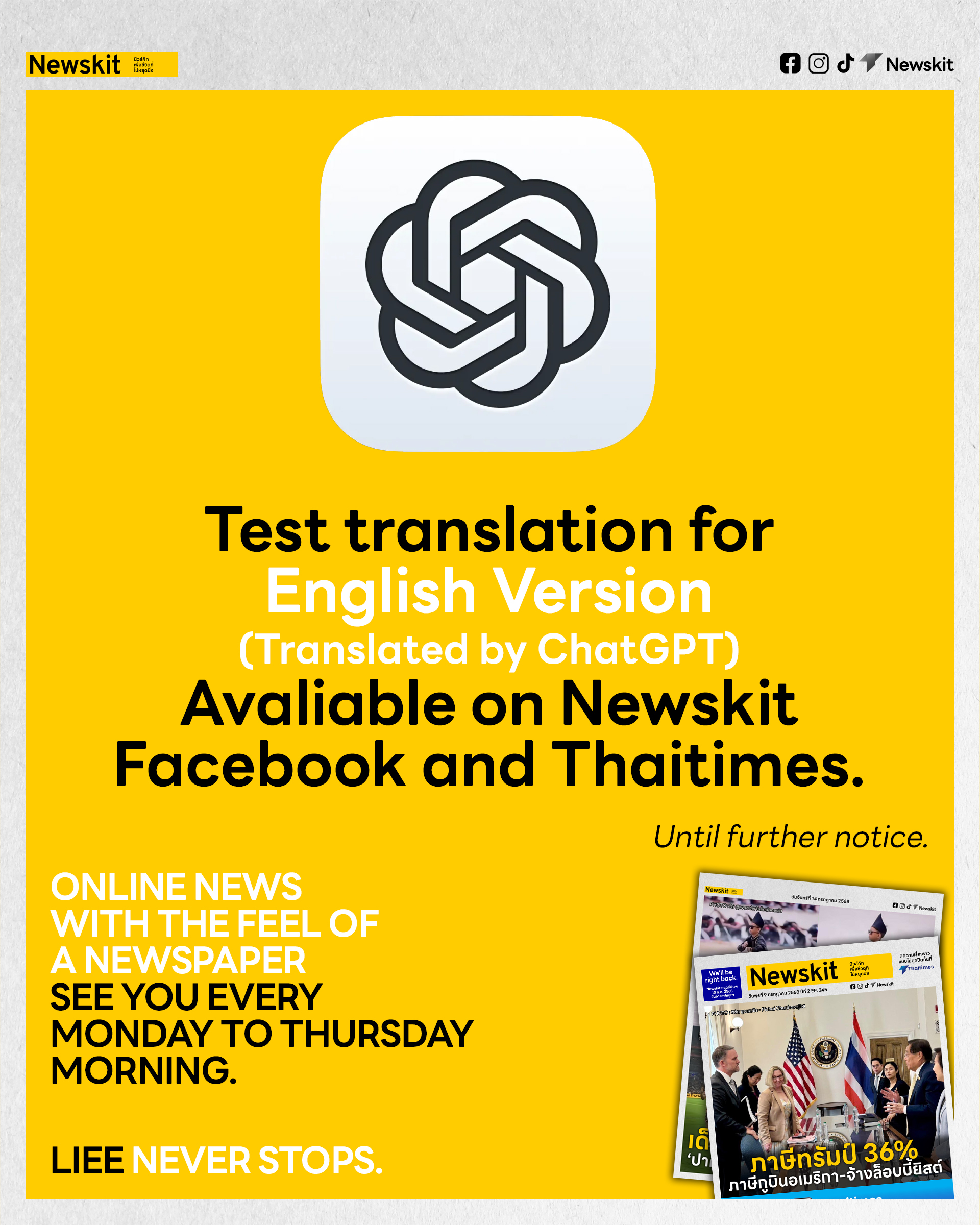O.P.K. เจาะลึก ดร.ก้องภพ วิธาน: จากนักอุดมการณ์สู่จอมผีดิบ
ชื่อเต็ม: ดร.ก้องภพ วิธาน
อายุ:42 ปี
สถานภาพ:สมรส มีบุตร 1 คน
```mermaid
graph TB
A[นักเรียนทุน<br>เก่งวิทยาศาสตร์] --> B[ปริญญาเอก<br>ชีววิทยาโมเลกุล]
B --> C[นักวิจัย<br>สถาบันชีวการแพทย์]
C --> D[ได้ตำแหน่ง<br>หัวหน้าโครงการอสรพิษ]
```
ความสำเร็จในวงการ
ดร.ก้องภพเคยเป็นดาวเด่นของวงการ:
· ตีพิมพ์งานวิจัย: 35 เรื่องในวารสารระดับโลก
· รางวัลนักวิทยาศาสตร์年轻有為: จากราชบัณฑิตยสถาน
· การค้นพบสำคัญ: เทคนิคการดัดแปลงพันธุกรรมแบบใหม่
ชีวิตครอบครัว
```python
class FamilyLife:
def __init__(self):
self.wife = "ศิริพร วิธาน - ครูโรงเรียนนานาชาติ"
self.daughter = "น้ำตาล วิธาน - อายุ 8 ขวบ"
self.home = "บ้านในโครงการฯ สุขุมวิท"
self.routine = {
"morning": "ส่งลูกไปโรงเรียน",
"day": "ทำงานวิจัย",
"evening": "เล่นกับลูกและสอนการบ้าน",
"weekend": "พาครอบครัวเที่ยวพิพิธภัณฑ์"
}
```
ดร.ก้องภพพัฒนาความเชื่อว่า:
"มนุษย์มีข้อบกพร่องมากเกินไป...
การเจ็บป่วย ความแก่ความตาย ล้วนเป็นความอ่อนแอ"
โครงการอสรพิษ
```python
class ProjectOscrop:
def __init__(self):
self.original_goal = "พัฒนาทหารสมรรถนะสูงเพื่อปกป้องประเทศ"
self.funding_source = "กองทัพและทุนลับจากต่างชาติ"
self.facility = "ห้องทดลองใต้ดินในปทุมธานี"
self.ethical_concerns = [
"ทดลองกับสัตว์โดยไม่ได้รับอนุญาต",
"ละเมิดกฎหมายชีวจริยธรรม",
"ปกปิดผลข้างเคียงจากผู้บริหาร",
"หลงระเริงกับอำนาจในการสร้างชีวิต"
]
```
15 มีนาคม 2043 - คืนแห่งการตัดสินใจ:
```mermaid
graph LR
A[การทดลองกับลิง<br>ได้ผลน่าทึ่ง] --> B[ทีมวิจัย<br>ขอหยุดเพื่อความปลอดภัย]
B --> C[ดร.ก้องภพ<br>ตัดสินใจทดลองกับตัวเอง]
C --> D[ปรสิตกลายพันธุ์<br>เกินคาดหมาย]
D --> E[สูญเสียการควบคุม<br>และกลายพันธุ์]
```
3 แรงขับเคลื่อนหลัก
```python
class Motivation:
def __init__(self):
self.conscious_motives = {
"desire_for_perfection": "ต้องการสร้างมนุษย์สมบูรณ์แบบ",
"fear_of_death": "กลัวการตายและความเจ็บป่วย",
"scientific_curiosity": "อยากรู้ว่ามนุษย์จะก้าวข้ามขีดจำกัดได้ไหม"
}
self.subconscious_motives = {
"childhood_trauma": "เห็นพ่อตายด้วยโรคมะเร็ง",
"inferiority_complex": "รู้สึกไม่ดีพอตั้งแต่เด็ก",
"messiah_complex": "อยากเป็นผู้กอบกู้มนุษยชาติ"
}
```
ความขัดแย้งภายใน
ดร.ก้องภพบันทึกในไดอารี่ลับ:
"บางครั้งฉันเฝ้าดูน้ำตาลลูกสาวนอน...
และสงสัยว่าฉันกำลังสร้างโลกแบบไหนให้เธอ
แต่แล้วฉันก็เห็นภาพพ่อตายในอ้อมแขนฉัน...
และความสงสัยนั้นก็หายไป"
การเปลี่ยนแปลงหลังติดเชื้อ
การเปลี่ยนแปลงทางกายภาพ
```mermaid
graph TB
A[สัปดาห์ที่ 1<br>พลังกายเพิ่มขึ้น] --> B[สัปดาห์ที่ 2<br>ผิวคล้ำและตาดำ]
B --> C[สัปดาห์ที่ 3<br>สามารถควบคุมผู้อื่นได้]
C --> D[สัปดาห์ที่ 4<br>กลายเป็นจอมผีดิบอย่างสมบูรณ์]
```
การเปลี่ยนแปลงทางพันธุกรรม
```python
class PhysicalChanges:
def __init__(self):
self.enhancements = {
"strength": "เพิ่มขึ้น 5 เท่า",
"speed": "เพิ่มขึ้น 3 เท่า",
"healing": "หายจากบาดแผลในไม่กี่ชั่วโมง",
"senses": "การได้ยินและการดมกลิ่นดีขึ้นอย่างมาก"
}
side_effects = {
"emotional_blunting": "ไม่สามารถรู้สึกความรักได้เหมือนเดิม",
"memory_fragmentation": "ความทรงจำเก่าค่อยๆ เลือนลาง",
"physical_disfigurement": "ผิวหนังคล้ำและหนาขึ้น",
"dietary_changes": "ต้องบริโภคเลือดสำหรับพลังงาน"
}
```
ชีวิตคู่ขนาน
ครอบครัวที่ไม่รู้ความจริง
ดร.ก้องภพพยายามปกปิดการเปลี่ยนแปลง:
· ใช้เครื่องสำอาง: ปกปิดผิวหนังที่คล้ำ
· ใส่คอนแทคเลนส์: ปกปิดตาที่ดำสนิท
· หลีกเลี่ยงการสัมผัส: กอดลูกและภรรยาน้อยลง
บันทึกความในใจ
"ทุกครั้งที่น้ำตาลเรียก 'พ่อ'...
หัวใจที่แทบไม่เต้นแล้วกลับรู้สึกอะไรบางอย่าง
แต่แล้วเสียงของหมู่คณะในหัวก็ดังขึ้น...
และความอบอุ่นนั้นก็หายไป"
ความขัดแย้งทางจริยธรรม
การเผชิญหน้ากับทีมวิจัย
ดร.สมศรี (เพื่อนร่วมงาน): "เราต้องหยุด! นี่ผิดจริยธรรม!"
ดร.ก้องภพ:"ความก้าวหน้าต้องการการเสียสละ!"
ดร.สมศรี:"แต่นี่มันไม่ใช่การเสียสละ... นี่คือการทำลายล้าง!"
การตัดสินใจครั้งสำคัญ
```python
class CriticalDecisions:
def __init__(self):
self.crossroads = [
"เลือกระหว่างครอบครัวกับอุดมการณ์",
"เลือกระหว่างความเป็นมนุษย์กับความอมตะ",
"เลือกระหว่างความรักกับอำนาจ",
"เลือกระหว่างจริยธรรมกับความก้าวหน้า"
]
self.regrets = [
"ไม่ฟังคำเตือนของทีมงาน",
"หลงระเริงกับพลังจนลืมมนุษย์ธรรมดา",
"ทำให้ครอบครัวต้องทุกข์ใจ",
"สร้างความเสียหายให้สังคม"
]
```
หนูดี: "ท่านยังรักครอบครัวท่านไหม?"
ดร.ก้องภพ:"รัก... แต่ความรักนั้นเจ็บปวดเกินไป"
หนูดี:"นั่นคือสิ่งที่ทำให้เราเป็นมนุษย์..."
ช่วงเวลาแห่งการตระหนัก
ขณะมองรูปครอบครัวในห้องทำงาน
"ฉันนึกถึงวันที่น้ำตาลเกิด...
น้ำตาที่ฉันเคยมีที่จะรู้สึก
และฉันก็เข้าใจว่า...
การเป็นอมตะที่ไม่มีความรู้สึก
就是การตายชนิดที่เลวร้ายที่สุด"
กระบวนการบำบัด
การรักษาด้วยสมุนไพร
```mermaid
graph TB
A[ยอมรับการรักษา] --> B[ได้รับสมุนไพร<br>ฟ้าทะลายโจรและขมิ้นชัน]
B --> C[ปรสิตค่อยๆ<br>อ่อนกำลังลง]
C --> D[จิตสำนึกเดิม<br>ค่อยๆ กลับมา]
D --> E[สามารถควบคุม<br>พลังได้บางส่วน]
```
การกลับสู่ครอบครัว
หลังการบำบัดบางส่วน:
· สามารถกอดลูกได้: โดยไม่ทำร้ายเธอ
· ความรู้สึกกลับมา: แม้จะไม่สมบูรณ์
· เริ่มเสียใจ: กับการตัดสินใจในอดีต
บทเรียนชีวิต
🪷 คำสอนจากดร.ก้องภพ
"ฉันเรียนรู้ว่า...
ความไม่สมบูรณ์แบบของมนุษย์
ไม่ใช่จุดอ่อนแต่คือความงาม
และการมีชีวิตที่จำกัด...
ทำให้ทุกช่วงเวลามีคุณค่า"
การให้อภัยตัวเอง
"ฉันต้องเรียนรู้ที่จะให้อภัยตัวเอง...
สำหรับความผิดพลาดทั้งหมด
และใช้สิ่งที่เรียนรู้...
เพื่อช่วยเหลือผู้อื่นไม่ให้เดินทางเดียวกับฉัน"
อนาคตใหม่
บทบาทใหม่ในสังคม
ดร.ก้องภพในบทบาทใหม่:
· ที่ปรึกษาด้านชีวจริยธรรม: เตือนภัยการทดลองที่เสี่ยงเกินไป
· ผู้ช่วยทางการแพทย์: ใช้ความรู้ในการรักษาผู้ติดเชื้อ
· พ่อและสามี: ที่พยายามชดเชยเวลาที่เสียไป
โครงการใหม่
```python
class NewProjects:
def __init__(self):
self.initiatives = {
"ethics_education": "สอนจริยธรรมการวิจัยให้นักวิทยาศาสตร์รุ่นใหม่",
"zombie_rehabilitation": "ช่วยเหลือผู้ติดเชื้อให้กลับสู่สังคม",
"family_support": "สนับสนุนครอบครัวของผู้ติดเชื้อ",
"prevention_program": "โปรแกรมป้องกันการระบาดครั้งใหม่"
}
```
---
คำคมสุดท้ายจากดร.ก้องภพ:
"ฉันเคยคิดว่าความสมบูรณ์แบบคือคำตอบ...
แต่ความจริงคือความไม่สมบูรณ์แบบต่างหากที่ทำให้เรามนุษย์
และฉันเคยเชื่อว่าความตายคือศัตรู...
แต่ความจริงคือมันคือเพื่อนที่ทำให้ชีวิตมีค่า
บัดนี้ฉันเข้าใจแล้วว่า...
การเป็นมนุษย์ที่สมบูรณ์หาใช่การไร้ข้อบกพร่อง
แต่คือการยอมรับข้อบกพร่องและยังคงเดินหน้าต่อไป"
บทเรียนแห่งการเป็นมนุษย์:
"จากนักอุดมการณ์สู่จอมผีดิบ...
และจากจอมผีดิบกลับสู่ความเป็นมนุษย์
การเดินทางนี้สอนเราว่า...
ไม่ว่าคุณจะหลงทางไปไกลแค่ไหน
ทางกลับบ้านยังคงรอคุณอยู่เสมอ"
ชื่อเต็ม: ดร.ก้องภพ วิธาน
อายุ:42 ปี
สถานภาพ:สมรส มีบุตร 1 คน
```mermaid
graph TB
A[นักเรียนทุน<br>เก่งวิทยาศาสตร์] --> B[ปริญญาเอก<br>ชีววิทยาโมเลกุล]
B --> C[นักวิจัย<br>สถาบันชีวการแพทย์]
C --> D[ได้ตำแหน่ง<br>หัวหน้าโครงการอสรพิษ]
```
ความสำเร็จในวงการ
ดร.ก้องภพเคยเป็นดาวเด่นของวงการ:
· ตีพิมพ์งานวิจัย: 35 เรื่องในวารสารระดับโลก
· รางวัลนักวิทยาศาสตร์年轻有為: จากราชบัณฑิตยสถาน
· การค้นพบสำคัญ: เทคนิคการดัดแปลงพันธุกรรมแบบใหม่
ชีวิตครอบครัว
```python
class FamilyLife:
def __init__(self):
self.wife = "ศิริพร วิธาน - ครูโรงเรียนนานาชาติ"
self.daughter = "น้ำตาล วิธาน - อายุ 8 ขวบ"
self.home = "บ้านในโครงการฯ สุขุมวิท"
self.routine = {
"morning": "ส่งลูกไปโรงเรียน",
"day": "ทำงานวิจัย",
"evening": "เล่นกับลูกและสอนการบ้าน",
"weekend": "พาครอบครัวเที่ยวพิพิธภัณฑ์"
}
```
ดร.ก้องภพพัฒนาความเชื่อว่า:
"มนุษย์มีข้อบกพร่องมากเกินไป...
การเจ็บป่วย ความแก่ความตาย ล้วนเป็นความอ่อนแอ"
โครงการอสรพิษ
```python
class ProjectOscrop:
def __init__(self):
self.original_goal = "พัฒนาทหารสมรรถนะสูงเพื่อปกป้องประเทศ"
self.funding_source = "กองทัพและทุนลับจากต่างชาติ"
self.facility = "ห้องทดลองใต้ดินในปทุมธานี"
self.ethical_concerns = [
"ทดลองกับสัตว์โดยไม่ได้รับอนุญาต",
"ละเมิดกฎหมายชีวจริยธรรม",
"ปกปิดผลข้างเคียงจากผู้บริหาร",
"หลงระเริงกับอำนาจในการสร้างชีวิต"
]
```
15 มีนาคม 2043 - คืนแห่งการตัดสินใจ:
```mermaid
graph LR
A[การทดลองกับลิง<br>ได้ผลน่าทึ่ง] --> B[ทีมวิจัย<br>ขอหยุดเพื่อความปลอดภัย]
B --> C[ดร.ก้องภพ<br>ตัดสินใจทดลองกับตัวเอง]
C --> D[ปรสิตกลายพันธุ์<br>เกินคาดหมาย]
D --> E[สูญเสียการควบคุม<br>และกลายพันธุ์]
```
3 แรงขับเคลื่อนหลัก
```python
class Motivation:
def __init__(self):
self.conscious_motives = {
"desire_for_perfection": "ต้องการสร้างมนุษย์สมบูรณ์แบบ",
"fear_of_death": "กลัวการตายและความเจ็บป่วย",
"scientific_curiosity": "อยากรู้ว่ามนุษย์จะก้าวข้ามขีดจำกัดได้ไหม"
}
self.subconscious_motives = {
"childhood_trauma": "เห็นพ่อตายด้วยโรคมะเร็ง",
"inferiority_complex": "รู้สึกไม่ดีพอตั้งแต่เด็ก",
"messiah_complex": "อยากเป็นผู้กอบกู้มนุษยชาติ"
}
```
ความขัดแย้งภายใน
ดร.ก้องภพบันทึกในไดอารี่ลับ:
"บางครั้งฉันเฝ้าดูน้ำตาลลูกสาวนอน...
และสงสัยว่าฉันกำลังสร้างโลกแบบไหนให้เธอ
แต่แล้วฉันก็เห็นภาพพ่อตายในอ้อมแขนฉัน...
และความสงสัยนั้นก็หายไป"
การเปลี่ยนแปลงหลังติดเชื้อ
การเปลี่ยนแปลงทางกายภาพ
```mermaid
graph TB
A[สัปดาห์ที่ 1<br>พลังกายเพิ่มขึ้น] --> B[สัปดาห์ที่ 2<br>ผิวคล้ำและตาดำ]
B --> C[สัปดาห์ที่ 3<br>สามารถควบคุมผู้อื่นได้]
C --> D[สัปดาห์ที่ 4<br>กลายเป็นจอมผีดิบอย่างสมบูรณ์]
```
การเปลี่ยนแปลงทางพันธุกรรม
```python
class PhysicalChanges:
def __init__(self):
self.enhancements = {
"strength": "เพิ่มขึ้น 5 เท่า",
"speed": "เพิ่มขึ้น 3 เท่า",
"healing": "หายจากบาดแผลในไม่กี่ชั่วโมง",
"senses": "การได้ยินและการดมกลิ่นดีขึ้นอย่างมาก"
}
side_effects = {
"emotional_blunting": "ไม่สามารถรู้สึกความรักได้เหมือนเดิม",
"memory_fragmentation": "ความทรงจำเก่าค่อยๆ เลือนลาง",
"physical_disfigurement": "ผิวหนังคล้ำและหนาขึ้น",
"dietary_changes": "ต้องบริโภคเลือดสำหรับพลังงาน"
}
```
ชีวิตคู่ขนาน
ครอบครัวที่ไม่รู้ความจริง
ดร.ก้องภพพยายามปกปิดการเปลี่ยนแปลง:
· ใช้เครื่องสำอาง: ปกปิดผิวหนังที่คล้ำ
· ใส่คอนแทคเลนส์: ปกปิดตาที่ดำสนิท
· หลีกเลี่ยงการสัมผัส: กอดลูกและภรรยาน้อยลง
บันทึกความในใจ
"ทุกครั้งที่น้ำตาลเรียก 'พ่อ'...
หัวใจที่แทบไม่เต้นแล้วกลับรู้สึกอะไรบางอย่าง
แต่แล้วเสียงของหมู่คณะในหัวก็ดังขึ้น...
และความอบอุ่นนั้นก็หายไป"
ความขัดแย้งทางจริยธรรม
การเผชิญหน้ากับทีมวิจัย
ดร.สมศรี (เพื่อนร่วมงาน): "เราต้องหยุด! นี่ผิดจริยธรรม!"
ดร.ก้องภพ:"ความก้าวหน้าต้องการการเสียสละ!"
ดร.สมศรี:"แต่นี่มันไม่ใช่การเสียสละ... นี่คือการทำลายล้าง!"
การตัดสินใจครั้งสำคัญ
```python
class CriticalDecisions:
def __init__(self):
self.crossroads = [
"เลือกระหว่างครอบครัวกับอุดมการณ์",
"เลือกระหว่างความเป็นมนุษย์กับความอมตะ",
"เลือกระหว่างความรักกับอำนาจ",
"เลือกระหว่างจริยธรรมกับความก้าวหน้า"
]
self.regrets = [
"ไม่ฟังคำเตือนของทีมงาน",
"หลงระเริงกับพลังจนลืมมนุษย์ธรรมดา",
"ทำให้ครอบครัวต้องทุกข์ใจ",
"สร้างความเสียหายให้สังคม"
]
```
หนูดี: "ท่านยังรักครอบครัวท่านไหม?"
ดร.ก้องภพ:"รัก... แต่ความรักนั้นเจ็บปวดเกินไป"
หนูดี:"นั่นคือสิ่งที่ทำให้เราเป็นมนุษย์..."
ช่วงเวลาแห่งการตระหนัก
ขณะมองรูปครอบครัวในห้องทำงาน
"ฉันนึกถึงวันที่น้ำตาลเกิด...
น้ำตาที่ฉันเคยมีที่จะรู้สึก
และฉันก็เข้าใจว่า...
การเป็นอมตะที่ไม่มีความรู้สึก
就是การตายชนิดที่เลวร้ายที่สุด"
กระบวนการบำบัด
การรักษาด้วยสมุนไพร
```mermaid
graph TB
A[ยอมรับการรักษา] --> B[ได้รับสมุนไพร<br>ฟ้าทะลายโจรและขมิ้นชัน]
B --> C[ปรสิตค่อยๆ<br>อ่อนกำลังลง]
C --> D[จิตสำนึกเดิม<br>ค่อยๆ กลับมา]
D --> E[สามารถควบคุม<br>พลังได้บางส่วน]
```
การกลับสู่ครอบครัว
หลังการบำบัดบางส่วน:
· สามารถกอดลูกได้: โดยไม่ทำร้ายเธอ
· ความรู้สึกกลับมา: แม้จะไม่สมบูรณ์
· เริ่มเสียใจ: กับการตัดสินใจในอดีต
บทเรียนชีวิต
🪷 คำสอนจากดร.ก้องภพ
"ฉันเรียนรู้ว่า...
ความไม่สมบูรณ์แบบของมนุษย์
ไม่ใช่จุดอ่อนแต่คือความงาม
และการมีชีวิตที่จำกัด...
ทำให้ทุกช่วงเวลามีคุณค่า"
การให้อภัยตัวเอง
"ฉันต้องเรียนรู้ที่จะให้อภัยตัวเอง...
สำหรับความผิดพลาดทั้งหมด
และใช้สิ่งที่เรียนรู้...
เพื่อช่วยเหลือผู้อื่นไม่ให้เดินทางเดียวกับฉัน"
อนาคตใหม่
บทบาทใหม่ในสังคม
ดร.ก้องภพในบทบาทใหม่:
· ที่ปรึกษาด้านชีวจริยธรรม: เตือนภัยการทดลองที่เสี่ยงเกินไป
· ผู้ช่วยทางการแพทย์: ใช้ความรู้ในการรักษาผู้ติดเชื้อ
· พ่อและสามี: ที่พยายามชดเชยเวลาที่เสียไป
โครงการใหม่
```python
class NewProjects:
def __init__(self):
self.initiatives = {
"ethics_education": "สอนจริยธรรมการวิจัยให้นักวิทยาศาสตร์รุ่นใหม่",
"zombie_rehabilitation": "ช่วยเหลือผู้ติดเชื้อให้กลับสู่สังคม",
"family_support": "สนับสนุนครอบครัวของผู้ติดเชื้อ",
"prevention_program": "โปรแกรมป้องกันการระบาดครั้งใหม่"
}
```
---
คำคมสุดท้ายจากดร.ก้องภพ:
"ฉันเคยคิดว่าความสมบูรณ์แบบคือคำตอบ...
แต่ความจริงคือความไม่สมบูรณ์แบบต่างหากที่ทำให้เรามนุษย์
และฉันเคยเชื่อว่าความตายคือศัตรู...
แต่ความจริงคือมันคือเพื่อนที่ทำให้ชีวิตมีค่า
บัดนี้ฉันเข้าใจแล้วว่า...
การเป็นมนุษย์ที่สมบูรณ์หาใช่การไร้ข้อบกพร่อง
แต่คือการยอมรับข้อบกพร่องและยังคงเดินหน้าต่อไป"
บทเรียนแห่งการเป็นมนุษย์:
"จากนักอุดมการณ์สู่จอมผีดิบ...
และจากจอมผีดิบกลับสู่ความเป็นมนุษย์
การเดินทางนี้สอนเราว่า...
ไม่ว่าคุณจะหลงทางไปไกลแค่ไหน
ทางกลับบ้านยังคงรอคุณอยู่เสมอ"
O.P.K. 🔬 เจาะลึก ดร.ก้องภพ วิธาน: จากนักอุดมการณ์สู่จอมผีดิบ
ชื่อเต็ม: ดร.ก้องภพ วิธาน
อายุ:42 ปี
สถานภาพ:สมรส มีบุตร 1 คน
```mermaid
graph TB
A[นักเรียนทุน<br>เก่งวิทยาศาสตร์] --> B[ปริญญาเอก<br>ชีววิทยาโมเลกุล]
B --> C[นักวิจัย<br>สถาบันชีวการแพทย์]
C --> D[ได้ตำแหน่ง<br>หัวหน้าโครงการอสรพิษ]
```
🏆 ความสำเร็จในวงการ
ดร.ก้องภพเคยเป็นดาวเด่นของวงการ:
· ตีพิมพ์งานวิจัย: 35 เรื่องในวารสารระดับโลก
· รางวัลนักวิทยาศาสตร์年轻有為: จากราชบัณฑิตยสถาน
· การค้นพบสำคัญ: เทคนิคการดัดแปลงพันธุกรรมแบบใหม่
💞 ชีวิตครอบครัว
```python
class FamilyLife:
def __init__(self):
self.wife = "ศิริพร วิธาน - ครูโรงเรียนนานาชาติ"
self.daughter = "น้ำตาล วิธาน - อายุ 8 ขวบ"
self.home = "บ้านในโครงการฯ สุขุมวิท"
self.routine = {
"morning": "ส่งลูกไปโรงเรียน",
"day": "ทำงานวิจัย",
"evening": "เล่นกับลูกและสอนการบ้าน",
"weekend": "พาครอบครัวเที่ยวพิพิธภัณฑ์"
}
```
ดร.ก้องภพพัฒนาความเชื่อว่า:
"มนุษย์มีข้อบกพร่องมากเกินไป...
การเจ็บป่วย ความแก่ความตาย ล้วนเป็นความอ่อนแอ"
🧪 โครงการอสรพิษ
```python
class ProjectOscrop:
def __init__(self):
self.original_goal = "พัฒนาทหารสมรรถนะสูงเพื่อปกป้องประเทศ"
self.funding_source = "กองทัพและทุนลับจากต่างชาติ"
self.facility = "ห้องทดลองใต้ดินในปทุมธานี"
self.ethical_concerns = [
"ทดลองกับสัตว์โดยไม่ได้รับอนุญาต",
"ละเมิดกฎหมายชีวจริยธรรม",
"ปกปิดผลข้างเคียงจากผู้บริหาร",
"หลงระเริงกับอำนาจในการสร้างชีวิต"
]
```
15 มีนาคม 2043 - คืนแห่งการตัดสินใจ:
```mermaid
graph LR
A[การทดลองกับลิง<br>ได้ผลน่าทึ่ง] --> B[ทีมวิจัย<br>ขอหยุดเพื่อความปลอดภัย]
B --> C[ดร.ก้องภพ<br>ตัดสินใจทดลองกับตัวเอง]
C --> D[ปรสิตกลายพันธุ์<br>เกินคาดหมาย]
D --> E[สูญเสียการควบคุม<br>และกลายพันธุ์]
```
🎯 3 แรงขับเคลื่อนหลัก
```python
class Motivation:
def __init__(self):
self.conscious_motives = {
"desire_for_perfection": "ต้องการสร้างมนุษย์สมบูรณ์แบบ",
"fear_of_death": "กลัวการตายและความเจ็บป่วย",
"scientific_curiosity": "อยากรู้ว่ามนุษย์จะก้าวข้ามขีดจำกัดได้ไหม"
}
self.subconscious_motives = {
"childhood_trauma": "เห็นพ่อตายด้วยโรคมะเร็ง",
"inferiority_complex": "รู้สึกไม่ดีพอตั้งแต่เด็ก",
"messiah_complex": "อยากเป็นผู้กอบกู้มนุษยชาติ"
}
```
💔 ความขัดแย้งภายใน
ดร.ก้องภพบันทึกในไดอารี่ลับ:
"บางครั้งฉันเฝ้าดูน้ำตาลลูกสาวนอน...
และสงสัยว่าฉันกำลังสร้างโลกแบบไหนให้เธอ
แต่แล้วฉันก็เห็นภาพพ่อตายในอ้อมแขนฉัน...
และความสงสัยนั้นก็หายไป"
🧟♂️ การเปลี่ยนแปลงหลังติดเชื้อ
🔄 การเปลี่ยนแปลงทางกายภาพ
```mermaid
graph TB
A[สัปดาห์ที่ 1<br>พลังกายเพิ่มขึ้น] --> B[สัปดาห์ที่ 2<br>ผิวคล้ำและตาดำ]
B --> C[สัปดาห์ที่ 3<br>สามารถควบคุมผู้อื่นได้]
C --> D[สัปดาห์ที่ 4<br>กลายเป็นจอมผีดิบอย่างสมบูรณ์]
```
🧬 การเปลี่ยนแปลงทางพันธุกรรม
```python
class PhysicalChanges:
def __init__(self):
self.enhancements = {
"strength": "เพิ่มขึ้น 5 เท่า",
"speed": "เพิ่มขึ้น 3 เท่า",
"healing": "หายจากบาดแผลในไม่กี่ชั่วโมง",
"senses": "การได้ยินและการดมกลิ่นดีขึ้นอย่างมาก"
}
side_effects = {
"emotional_blunting": "ไม่สามารถรู้สึกความรักได้เหมือนเดิม",
"memory_fragmentation": "ความทรงจำเก่าค่อยๆ เลือนลาง",
"physical_disfigurement": "ผิวหนังคล้ำและหนาขึ้น",
"dietary_changes": "ต้องบริโภคเลือดสำหรับพลังงาน"
}
```
🎭 ชีวิตคู่ขนาน
🏠 ครอบครัวที่ไม่รู้ความจริง
ดร.ก้องภพพยายามปกปิดการเปลี่ยนแปลง:
· ใช้เครื่องสำอาง: ปกปิดผิวหนังที่คล้ำ
· ใส่คอนแทคเลนส์: ปกปิดตาที่ดำสนิท
· หลีกเลี่ยงการสัมผัส: กอดลูกและภรรยาน้อยลง
📖 บันทึกความในใจ
"ทุกครั้งที่น้ำตาลเรียก 'พ่อ'...
หัวใจที่แทบไม่เต้นแล้วกลับรู้สึกอะไรบางอย่าง
แต่แล้วเสียงของหมู่คณะในหัวก็ดังขึ้น...
และความอบอุ่นนั้นก็หายไป"
⚖️ ความขัดแย้งทางจริยธรรม
🔥 การเผชิญหน้ากับทีมวิจัย
ดร.สมศรี (เพื่อนร่วมงาน): "เราต้องหยุด! นี่ผิดจริยธรรม!"
ดร.ก้องภพ:"ความก้าวหน้าต้องการการเสียสละ!"
ดร.สมศรี:"แต่นี่มันไม่ใช่การเสียสละ... นี่คือการทำลายล้าง!"
💔 การตัดสินใจครั้งสำคัญ
```python
class CriticalDecisions:
def __init__(self):
self.crossroads = [
"เลือกระหว่างครอบครัวกับอุดมการณ์",
"เลือกระหว่างความเป็นมนุษย์กับความอมตะ",
"เลือกระหว่างความรักกับอำนาจ",
"เลือกระหว่างจริยธรรมกับความก้าวหน้า"
]
self.regrets = [
"ไม่ฟังคำเตือนของทีมงาน",
"หลงระเริงกับพลังจนลืมมนุษย์ธรรมดา",
"ทำให้ครอบครัวต้องทุกข์ใจ",
"สร้างความเสียหายให้สังคม"
]
```
หนูดี: "ท่านยังรักครอบครัวท่านไหม?"
ดร.ก้องภพ:"รัก... แต่ความรักนั้นเจ็บปวดเกินไป"
หนูดี:"นั่นคือสิ่งที่ทำให้เราเป็นมนุษย์..."
💫 ช่วงเวลาแห่งการตระหนัก
ขณะมองรูปครอบครัวในห้องทำงาน
"ฉันนึกถึงวันที่น้ำตาลเกิด...
น้ำตาที่ฉันเคยมีที่จะรู้สึก
และฉันก็เข้าใจว่า...
การเป็นอมตะที่ไม่มีความรู้สึก
就是การตายชนิดที่เลวร้ายที่สุด"
🏥 กระบวนการบำบัด
🌿 การรักษาด้วยสมุนไพร
```mermaid
graph TB
A[ยอมรับการรักษา] --> B[ได้รับสมุนไพร<br>ฟ้าทะลายโจรและขมิ้นชัน]
B --> C[ปรสิตค่อยๆ<br>อ่อนกำลังลง]
C --> D[จิตสำนึกเดิม<br>ค่อยๆ กลับมา]
D --> E[สามารถควบคุม<br>พลังได้บางส่วน]
```
💞 การกลับสู่ครอบครัว
หลังการบำบัดบางส่วน:
· สามารถกอดลูกได้: โดยไม่ทำร้ายเธอ
· ความรู้สึกกลับมา: แม้จะไม่สมบูรณ์
· เริ่มเสียใจ: กับการตัดสินใจในอดีต
📚 บทเรียนชีวิต
🪷 คำสอนจากดร.ก้องภพ
"ฉันเรียนรู้ว่า...
ความไม่สมบูรณ์แบบของมนุษย์
ไม่ใช่จุดอ่อนแต่คือความงาม
และการมีชีวิตที่จำกัด...
ทำให้ทุกช่วงเวลามีคุณค่า"
💝 การให้อภัยตัวเอง
"ฉันต้องเรียนรู้ที่จะให้อภัยตัวเอง...
สำหรับความผิดพลาดทั้งหมด
และใช้สิ่งที่เรียนรู้...
เพื่อช่วยเหลือผู้อื่นไม่ให้เดินทางเดียวกับฉัน"
🔮 อนาคตใหม่
🎯 บทบาทใหม่ในสังคม
ดร.ก้องภพในบทบาทใหม่:
· ที่ปรึกษาด้านชีวจริยธรรม: เตือนภัยการทดลองที่เสี่ยงเกินไป
· ผู้ช่วยทางการแพทย์: ใช้ความรู้ในการรักษาผู้ติดเชื้อ
· พ่อและสามี: ที่พยายามชดเชยเวลาที่เสียไป
🌟 โครงการใหม่
```python
class NewProjects:
def __init__(self):
self.initiatives = {
"ethics_education": "สอนจริยธรรมการวิจัยให้นักวิทยาศาสตร์รุ่นใหม่",
"zombie_rehabilitation": "ช่วยเหลือผู้ติดเชื้อให้กลับสู่สังคม",
"family_support": "สนับสนุนครอบครัวของผู้ติดเชื้อ",
"prevention_program": "โปรแกรมป้องกันการระบาดครั้งใหม่"
}
```
---
คำคมสุดท้ายจากดร.ก้องภพ:
"ฉันเคยคิดว่าความสมบูรณ์แบบคือคำตอบ...
แต่ความจริงคือความไม่สมบูรณ์แบบต่างหากที่ทำให้เรามนุษย์
และฉันเคยเชื่อว่าความตายคือศัตรู...
แต่ความจริงคือมันคือเพื่อนที่ทำให้ชีวิตมีค่า
บัดนี้ฉันเข้าใจแล้วว่า...
การเป็นมนุษย์ที่สมบูรณ์หาใช่การไร้ข้อบกพร่อง
แต่คือการยอมรับข้อบกพร่องและยังคงเดินหน้าต่อไป"🔬✨
บทเรียนแห่งการเป็นมนุษย์:
"จากนักอุดมการณ์สู่จอมผีดิบ...
และจากจอมผีดิบกลับสู่ความเป็นมนุษย์
การเดินทางนี้สอนเราว่า...
ไม่ว่าคุณจะหลงทางไปไกลแค่ไหน
ทางกลับบ้านยังคงรอคุณอยู่เสมอ"🌈
0 Comments
0 Shares
548 Views
0 Reviews





